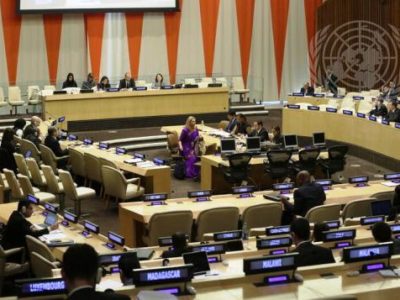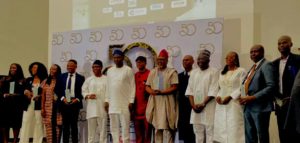

By Olusegun Oruame
Nigeria may be Africa’s largest economy but it does not lead the continent’s digital economy. In fact, it is lagging behind Ghana and Cabo Verde in West Africa, according to startling insightful revelation by Ike Nnamani, CEO Digital Realty Nigeria, in his presentation on the ‘Myths and Realities of Nigerian Digital Economy’ at the just ended ‘50 Most Valuable Personalities in Nigeria’s Digital Economy Conference & Award in Lagos.
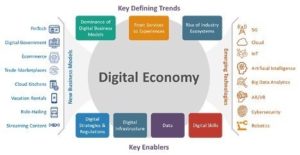
According to Nnamani, “Nigeria is undergoing accelerated digitization of the consumer and enterprise economies, in turn driving demand for people with digital skills, data center capacity and attracting new providers into the market.”
RELATED: Digital Realty’s Nnamani to illuminate future of Nigeria’s digital economy at 50 MVPs event
Other identifiable realities of Nigeria’s digital economy are “strong growth in subscriber base; and strong push towards fiber penetration.” However, the myths of its digital economy present challenges and opportunities for government, policy makers and other stakeholders including operators to stir the country to progress and ‘shared prosperity.’
The Digital Realty’s boss examined five myths to provide insights into the entire spectrum of Nigeria’s digital economy. He itemized the myths as follows:
Myth #1: Nigeria has excess number and capacity on subsea cables
The fact demonstrated by the “recent subsea cables cut shows more redundancy needed,” Nnamani told an audience of ICT/Telecoms CEOs and political though leaders.
Myth #2: Nigeria has strong cloud services and local cloud infrastructure
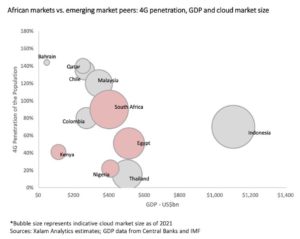
This is clearly not the reality on ground. While there are significant numbers of cloud infrastructure providers, the gaps for cloud services remain extensive and largely unmet.
Myth #3: The Digital Economy will be primarily driven by Telcos
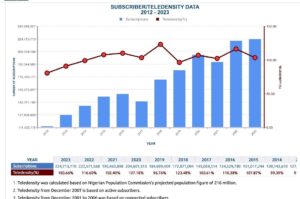
While this myth may have been reinforced by deliberate policy attention on telcos and the huge mobile subscriptions in excess of 200 million, a mix of factors including the technology shift to 5G with onward progression to 6G and the rise of hyperscalers would mean that the digital economy will be beyond telcos as sole markers of growth.
Myth #4: Nigeria’s datacenter market has matured.
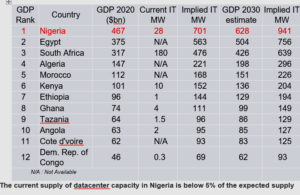
Nnamani emphasized: “the fact is that Nigeria is the country with largest datacentre potential in Africa but currently lagging behind smaller economies as the table shows. There is tendency for regular exaggeration of the growth curve for datacentres that often play down the significant growth of datacentres and impact in other economies within the continent.
Myth #5: Nigeria’s GDP makes it the leader in Africa digital economy. Nigeria’s ranking as the largest economy does not equate to the largest digital economy as the table shows that even in West Africa, it ranks third in behind Ghana and Cabo Verde. “The Index measures, access and rank which of the West Africans states is implementing, adopting while using good policies among other uses of digital services while mapping the growth of its digital development sectors for socio-economic transformations. It used about 10 variables from Mobile Money & Online transactions to Digital Infrastructure & Policy implementation.” The conclusion? Nigeria needs to fine-tune its policy and infrastructure buildout if it must take the top spot.
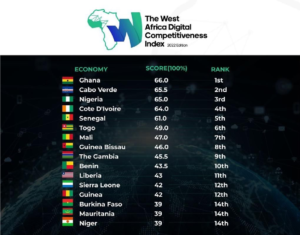
“Nigeria is poised to be the largest digital economy in Africa but more work need to be done in implementing the right policies and infrastructure needed to achieve this,” said Nnamani who was equally honoured as one of Nigeria’s 50 Most Valuable Personalities (50MVPs).
The event drew stakeholders from the leadership and members of the Association of Telecommunications Companies of Nigeria (ATCON); Association of Licensed Telecoms Operators of Nigeria (ALTON); and the Association of Licensed Data Protection Organisations of Nigeria (ALDAPCON).
The key presentation was by Dr. Vincent Olatunji, National Commissioner/CEO, Nigeria Data Protection Commission (NDPC), who highlighted the place of data protection in the digital economy shortly before carrying out the prelaunch ceremony of the National Privacy Awareness Campaign anchored by the Nigerian Stakeholders for Data Protection Awareness (NSDPA).
Dr. Olatunji said the prelaunch underscores “the commitment of NDPC to raising the awareness level of citizens on data protection as a proper condition to make compliance to the Nigeria Data Protection Act 2023 achievable by practice.
Credit for infographics: Engr Ike Nnamani






